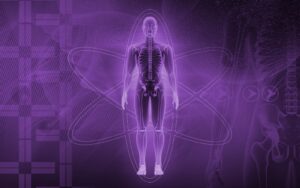
One of the most commonly cited reasons for abusing drugs or alcohol is that it makes us feel good. Unfortunately, this is also what leads many of us to become addicted and to experience all of the negative physical side-effects long-term substance abuse has on our bodies. In this post, we’ll explore a few of the most common mental and physical health problems related to long-term drug addiction. While there are many factors that contribute to substance use, understanding the 4 Alcohol Addiction Risk Factors can help shed light on why some individuals struggle more than others.
Psychological Effects of Addiction
Depression: Depression and other mental health problems are widely known to be risk factors for addiction to drugs and alcohol. And, people who have underlying mental health conditions often find that addiction only makes them worse. But, even people with no prior history of clinical depression may find themselves struggling with the condition as a direct result of addiction. Drugs may make us feel good for a short amount of time, but after the effects wear off, we are often left feeling worse than before. Combined with feelings of guilt or shame related to the addiction, it’s easy for a clinically-diagnosable case of depression to develop.
Anxiety: Because addicts rely on drugs to feel good or to avoid unpleasant withdrawal symptoms, they will typically feel anxious or restless while waiting for their next dose. This anxiety makes it impossible to stay focused and could cause problems at work, at home or within relationships. Fortunately, drug-related anxiety often lessens as treatment progresses.
Paranoia: Many people report strong feelings of paranoia while actively addicted to drugs like cocaine or marijuana. Paranoia is characterized as a persistent, unshakable sense that everyone is out to get us. Sometimes paranoia is completely irrational, but for people struggling with addiction, the illegality of buying and using illicit substances makes the feeling even more intense. For those facing the unique challenges of PCP addiction, our PCP addiction treatment program offers the comprehensive care needed to address both the physical and psychological aspects of addiction.
How Does Addiction Affect the Body?
The Raleigh House Responds: The long-term effects of drug addiction on the body include serious, possibly fatal health problems like heart disease, kidney failure, lung damage, liver failure and more. LSD addiction treatment is essential for those who struggle with this hallucinogen, as it can lead to psychological and physical consequences.
Physical Effects of Addiction
Kidney Failure: Kidneys filter our blood for waste and help us release or retain water. Long-term drug addiction can take a serious toll on them. For people addicted to crystal meth, heroin and others, kidney failure is not uncommon.
Liver Failure: Alcoholics aren’t the only addicts who should be concerned about liver damage and failure. Prescription painkillers like Vicodin and OxyContin can also damage the liver when habitually abused over the years.
Heart Disease/Failure: The class of drugs known as stimulants, which includes cocaine, is known to cause serious damage to the heart. The longer a cocaine addict goes untreated for addiction, the more severe the damage.
Lung Damage: Many addicts smoke their drugs to feel the effects. As we all know by now, smoking anything causes long-term damage to our lungs, and increases our risk of cancer.
Drug Addiction is a Chronic, but Manageable Condition
With the right marijuana addiction treatment program, people who are struggling with drug addiction can – and do – get better. It doesn’t happen overnight, and it doesn’t happen without hard work; but it does happen. And, when it happens, the damage to our minds and bodies gradually starts to heal. Understanding the Long-Term Body Effects of Heroin Addiction can motivate individuals to seek help and commit to recovery. If you or someone you care about is ready to make a change, we’re ready to help. Call us today.

Related Articles
The Neurobiology of Addiction: How Substance Abuse Impacts the Brain
What Are the Stages of Addiction: An Overview on The Progression of Substance Use
A Day in the Life of a Drug Addict: What Your Loved One Goes Through
